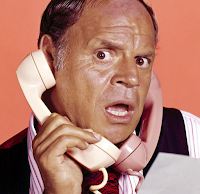** This week over at Newsarama, I reviewed Inio Asano's Goodnight Punpun Book One (along with Miracleman: The Golden Age), the newly first released collection of Asano's 2007-2013 series originally published in Weekly Young Sunday and Big Comic Spirits in Japan. In this series about an average kid in an average town, Asano makes the world seem that much smaller because Punpun's Japan doesn't seem all that different from the cities of the U.S.
In Goodnight Punpun, Vol. 1, Inio Asano doesn’t pull any punches about just how much it sucks and in doing so, his views of childhood are equal parts nostalgia and psychological horror. Trying to grow up as an average kid in an average town, Punpun has his share of real life to try and deal with. His parents don’t necessarily love each other anymore. His own mother seems to view him more as an obligation than as a loving son and his father has many anger-management issues to work through. As a kid, trying to deal with all of that is hard enough but then throw on top of it having to figure out the changes you go through when you finally fall in love for the first time. Punpun is a good kid going through some of the toughest times in his young life as Asano tries to make sense the turbulence of growing up.In my review of Goodnight Punpun, I wrote a lot about how Asano captures the experience of childhood. Reading this book, there was a lot of myself that I was able to recognize in Punpun but there was a second way that I read this comic that didn't enter into the review that much.
I'm at a point in my life where I can look back on my own childhood with a certain amount of nostalgia but I'm also watching my 11-year-old son go through this time in his life. So as much as I saw myself, I saw my son in this book. It's maybe not what he's going through now but the experiences of friends and falling in love for the first time is something that he'll be going through very soon if he's anything like his old man. But it's weird to read a book about a young man or young woman going through life because I'm reading this as a parent right now and I want to protect Punpun and his friends like I want to protect my own son and his friends.
Making this an even more odd experience is that this isn't the only time recently I've wanted to protect a young person in an Asano book. Just a few months ago, Vertical released his A Girl On the Shore (2009-2013,) a slightly older book about teenagers who use their sexuality a drug to escape what they think their lives are.
A Girl On the Shore is a tough book to get through because it's very raw in the way that Asano depicts these kids having sex. It's not lurid but it does linger on these kids as sexual objects in the ways that the kids are probably gazing at each other. Part of me thinks that in an American prudish way, it would be easier to read if these kids were using drugs. At least, there are ways partially to pass that off as teenage rebellion; "It's a phase..."
Like Punpun, A Girl On the Shore's Koume and Keisuke feel like their alone in the world. Asano shows a world here devoid of adults. Maybe they're a presence in these kids' lives but they're barely a presence in the comic. At least, Punpun has his uncle, father, and mother. I personally didn't identify with Koume and Keisuke the way that I did with Punpun but the feeling of being a father and watching these kids struggle through life, growing up too fast, was really hard as I had to wonder what discovering yourself is like for adolescents and young adults in the 21st century.
It's been a long time since I read Solanin or What a Wonderful World but I wonder what they would be like to read them again because I suspect that they share Asano's viewpoint on people's development from youth to adult. Asano has been one of my favorite creators since I read Solanin and I'm glad to see Goodnight Punpun, his first long-term series translated into English, knowing that there's a lot more to come. As much as I want to assure Punpun from personal experience that things will get better, I want to hug him as a parent and protect him from a world that doesn't him to be just an average kid in an average town.
It's funny how much of my own baggage I bring to my reading of Inio Asano. It's probably no different than what I bring to other creators but it feels so much more blatant to me, because it doesn't speak to just me as myself but also to me as a parent. I don't know how many other books have done that.










